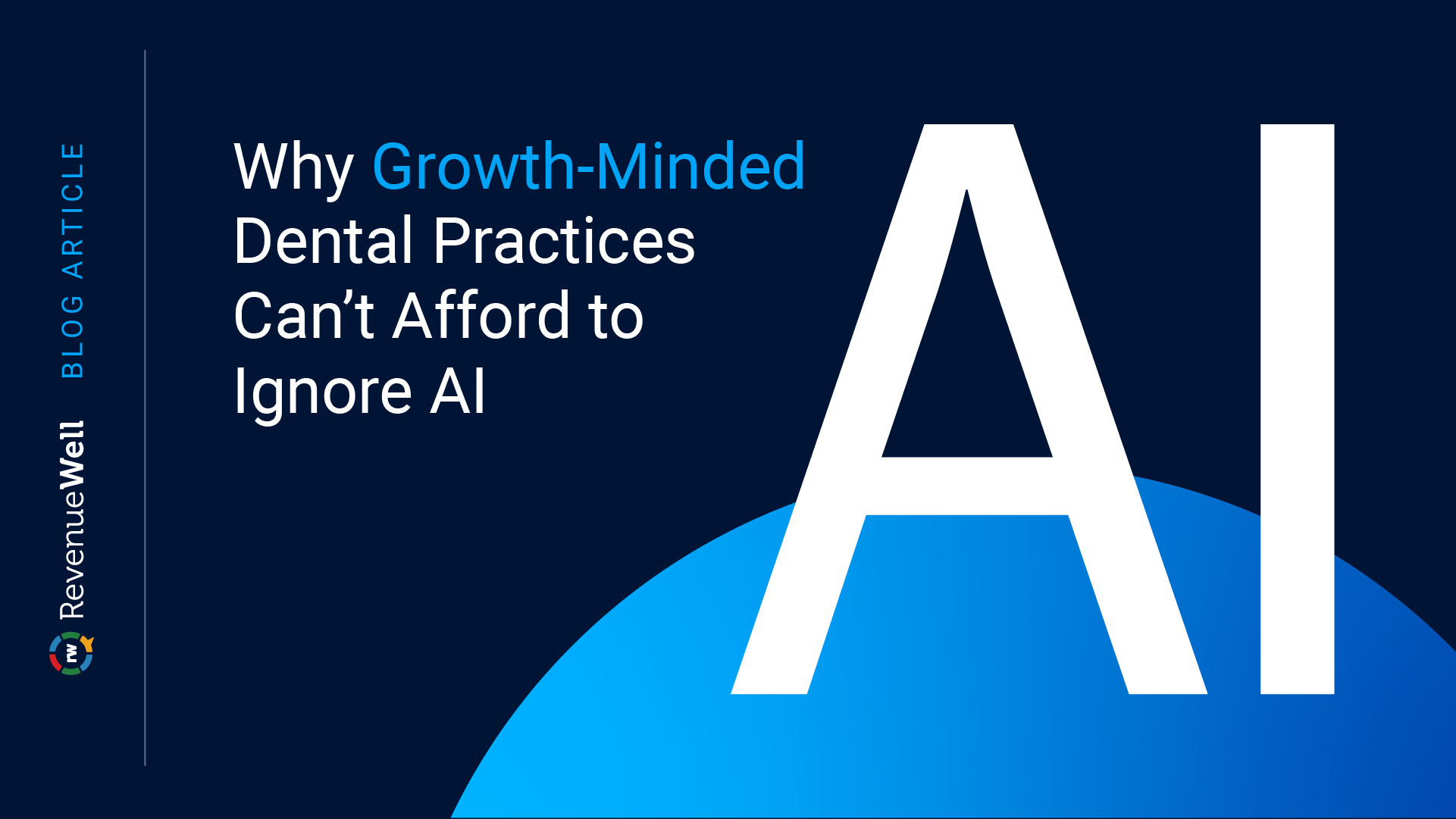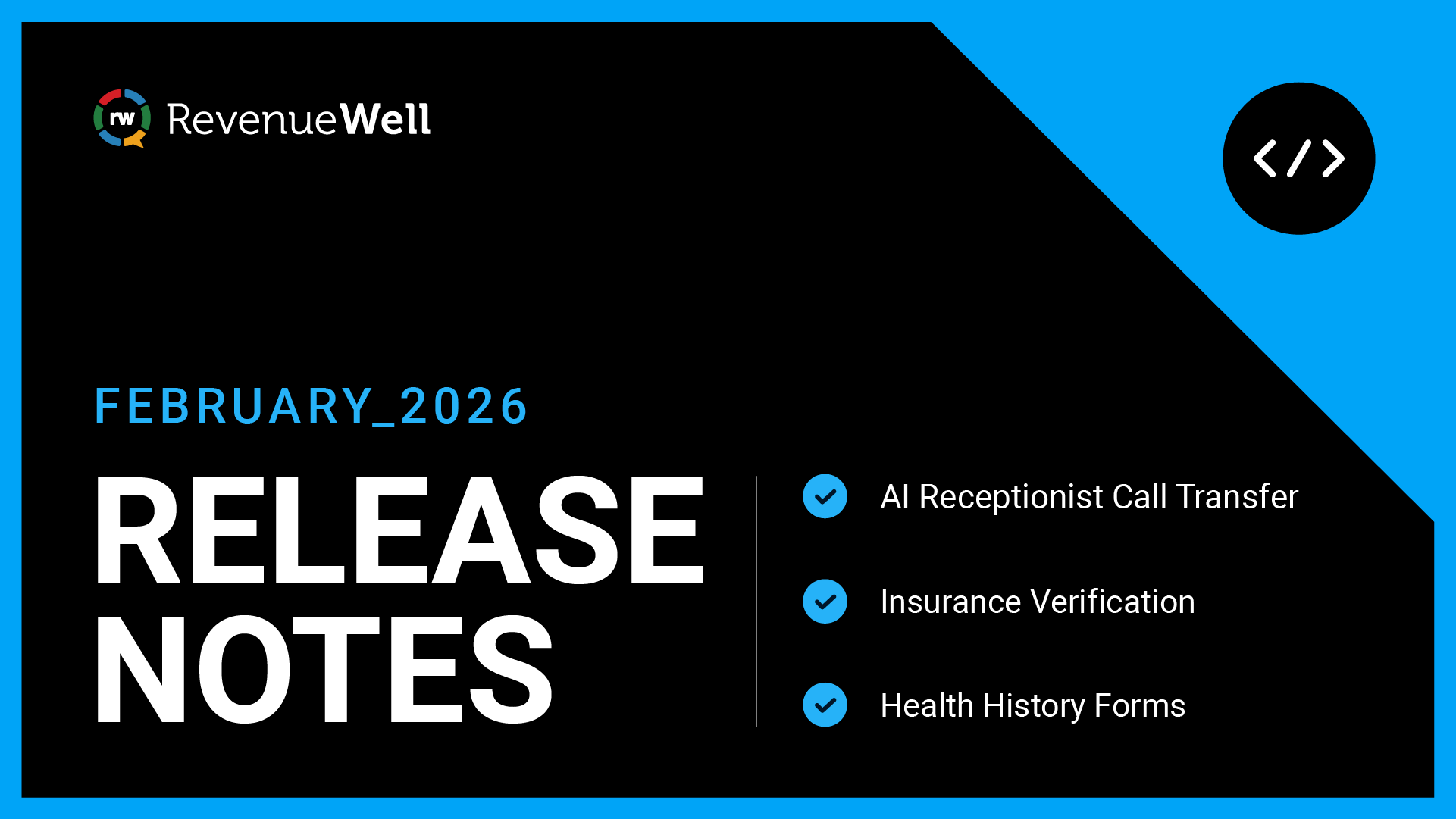Why Growth-Minded Dental Practices Can’t Afford to Ignore AI

Phones are ringing off the hook. Patients are calling and emailing about appointments after hours. Your front office team is getting the same general practice questions asked repeatedly while they also manage check-ins and check-outs simultaneously.
Does this look like your practice today? You know you have an incredible team, but even the best staff can face burnout if they don’t have the right support.
Now imagine a front office that runs smoothly no matter how busy the day gets. Calls are answered, questions are handled instantly, and scheduling happens automatically, all without overwhelming your team. They get the support they deserve and can focus on the high-priority work that grows your practice.
This isn’t a distant vision. It’s happening today with the power of AI in dentistry. Industries like finance, retail, and healthcare have already embraced AI to improve efficiency and the customer experience. Dental practices that adopt AI early are positioning themselves for long-term success and staying ahead of the competition.
Why Is AI Essential for Practice Growth?
Running a dental practice has never been more complex. While patient care is your top priority, you’re running a business. A profitable practice needs the right tools and clear processes to help a team succeed, without risking burnout. And if a practice doesn’t have a well-equipped team, then it impacts other areas of the practice.
AI has evolved from a “nice-to-have” to a “must-have” for growth-minded practices. Here’s why:
- Patients expect convenience. 80% of consumers say online scheduling impacts their decision in choosing a provider. They want to be able to schedule or reschedule an appointment fast, whether that’s at 10 a.m. or 10 p.m. Your team can’t be expected to handle it after hours.
- Staffing shortages are real. According to a 2024 Dental Post Study, 29% of front office associates switch employers due to a better work environment, more appreciation, and better hours. AI can take repetitive tasks off your team’s plate, making their workload more manageable and ensuring the important work that impacts revenue gets done.
- Competition is fierce. The number of dentists in the US is expected to increase through 2040. In 2025, there were approximately 61.3 dentists per 100,000 people and that number is expected to increase to 67.0 by 2040. Additionally, this study indicates the dentist workforce is getting younger and that the industry will potentially see a 1% annual growth in dental graduates each year after 2026. Practices that offer modern, always available communication stand out and patients notice.
For practice owners, adding AI to your tech stack isn't simply for the sake of it. It’s about keeping pace with where dentistry is going and protecting your practice’s future. You’ve put everything into getting to where you are professionally and without AI, your practice risks falling behind and missing out on growth opportunities.
How Does AI Look at a Dental Practice?
AI in dental practices is about empowerment and support, not replacement. This is a message to emphasize to your team if you have people who might be hesitant about AI.
Here’s how an AI Assistant can take on routine work:
- Booking and rescheduling appointments automatically, even after hours.
- Answering patient questions like “What are your hours?” or “Do you accept my insurance?” in a friendly and conversational way like your team would.
- Flagging and collecting patient information from intake forms.
Here’s an example scenario: Your front office team focuses on caring for patients in person and tackling the high priority work, while your AI Assistant quietly handles routine scheduling, responds to general practice questions, and collects missing patient information across your website, phone, and text.
What Are the Benefits of Having AI?
Adding AI to your practice benefits your team by easing their workload and improving your practice’s bottom line.
- Revenue growth: An AI Assistant can generate $22,000 in additional new appointment revenue annually, all without adding headcount or increasing marketing spend.
- Cost-savings: An AI Virtual Assistant can save a dental office about $2,700 per year and nearly a full day of work each week by helping your team handle more patient calls and patient questions ASAP without expanding payroll—particularly if you’re not able to expand your front desk staff.
- Time savings: Reclaim 3–4 full workdays every month by letting AI handle scheduling tasks and collecting missing patient information during intake. Your team can focus on patient care, case acceptance, and revenue-generating activities instead of routine admin work.
- Happier patients, stronger retention: Quick actions and responses give patients a positive practice experience, so they’re more likely to come back and refer others.
Time for the Next Stage of Your Dental Practice
AI’s evolution is moving fast, and it’s here to stay. What feels innovative today will soon become the industry standard.
By adopting early, you position your practice as:
- Modern and patient-centric meeting patients where they are. Who doesn’t want to be seen as modern?
- Adaptable and ready to evolve as technology continues to advance.
- Growth-focused with more time for improving case acceptance, production, and expanding your services. It's your practice so you fill in the blanks.
AI is here to solidify your practice and give your team the support they need to succeed. It’s not a trend that will fizzle out and come back in a few years. AI is the new standard to run your dental practice and position your practice for long-term success.
Watch this 13-minute podcast to see how RevenueWell’s AI Assistant can empower your front office and prepare your practice for the future. Plus, get a sneak peek at how easily it can schedule an appointment by phone.



.png)
